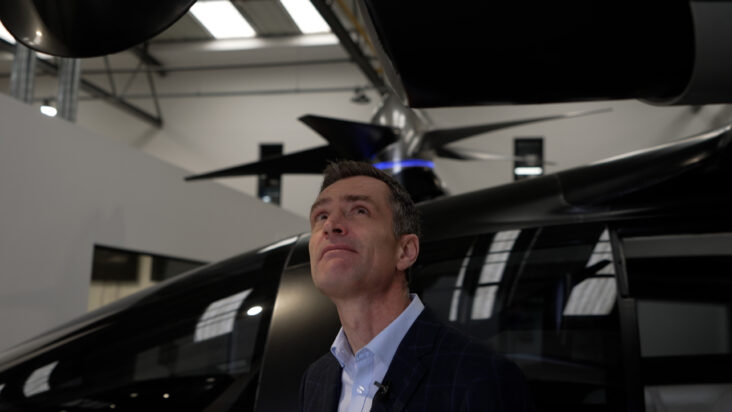From Flying Taxis To Underwater Homes, The Innovations Shaping The Future

In a special half-hour show Blueprint, CNN’s Max Foster travels across the UK to explore the innovations shaping the world, from flying taxis to homes for humans in the depths of the oceans.
The UK has been at the forefront of change since the Industrial Revolution and Foster sets out to discover the innovative firms and industries aiming to keep this transformative legacy going. In Bristol, Vertical Aerospace is pioneering a new era of aviation with its fully electric VX4 aircraft. Chief Engineer David King explains, “This is the VX4. You’ll see it has eight propellers. So, it takes off and lands vertically like a helicopter, but it cruises like an aeroplane.”
The firm says the VX4 will reach a top speed of 240 kmph, with a range of up to 160 km. It is designed for use in cities and King compares it to a traditional helicopter, “Number one, it’s much, much, much quieter, right? It’s like getting an electric car versus an internal combustion engine. Once in the cruise mode, you’re not even going to hear it. The noise level is going to be below the ambient noise. Number two, it’s zero emissions, much, much cleaner. And number three, it’s much less expensive than a helicopter. And then number four is the safety. It’s being designed to be an airliner safety standard.”
In Belfast, Artemis Technologies is on a mission to decarbonise maritime transport. Founder and CEO Iain Percy is a two-time Olympic champion whose extensive experience in high-performance sailing was crucial in the company’s ‘eFoiler’ innovation – a zero-emission propulsion solution for high-speed maritime transport. He tells CNN, “I think in terms of people transportation, there’s a lot of opportunity with this technology to think about using our waterways as well.”
The company uses an underwater wing that lifts a boat’s hull out of the water, drastically reducing drag. Powered by an electric battery, the vessels are more efficient than conventional diesel-powered boats. Percy explains, “The flight is controlled with these actuators controlling the flaps. And in that way, we feel we’re very much in the aerospace industry here as we are in the marine.”
Finally, in Chepstow, Wales, Foster sees how startup DEEP is hoping to spark a renaissance of ocean exploration with its underwater Sentinel habitat. Chief Development Officer Ethan Butler talks about the company’s aims, “Our motto is to make humans aquatic […] Our goal is to help understand all of the myriad ways that the ocean benefits us all, whether we recognise it or not. And to do it in a way that is unobtrusive and aligned with the ocean.”
DEEP says its modules will allow scientists to live at a depth of up to 200 metres and while scientific exploration is its primary goal, the underlying innovation could pave the way for tourism or even living underwater. Lead diver Phil Short tells Foster, “Scientifically and physiologically, the possibility for subsea villages is absolutely there.”
From the skies to the depths of the oceans, Foster sees how British innovators are building the ideas that will shape the future and redefining what is possible.



